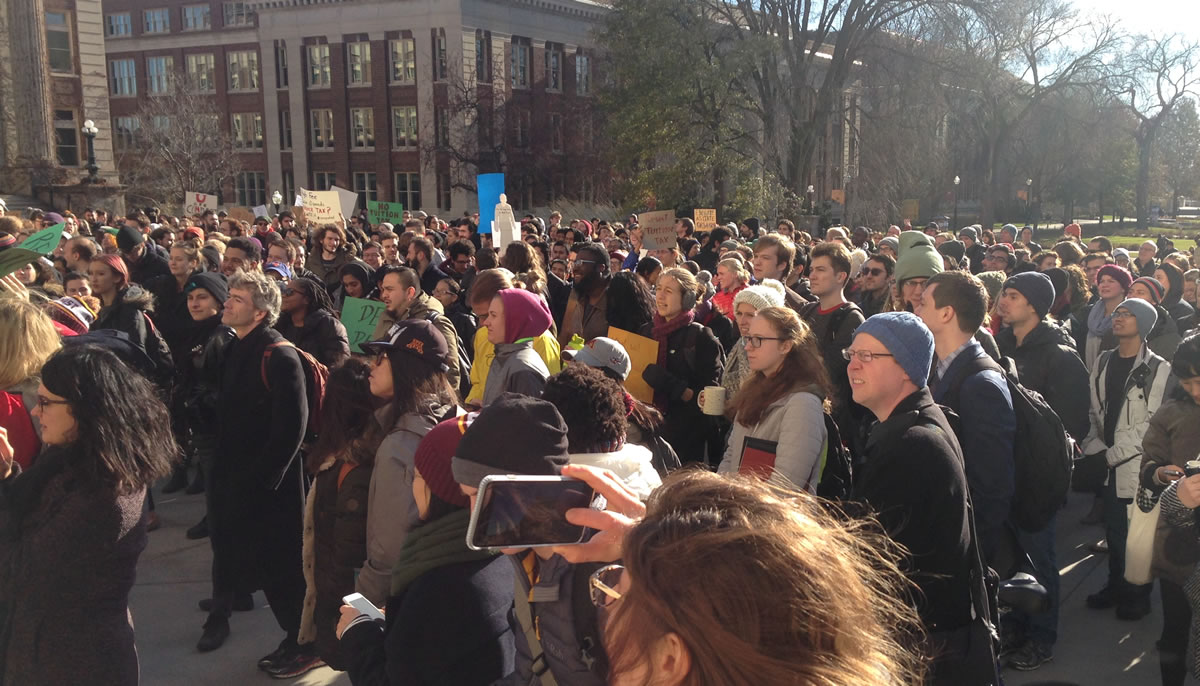

Share
With the U.S. Senate poised to enact sweeping tax cuts for the wealthy, University of Minnesota teaching assistants, research assistants and other graduate workers marched to protest the plan. They say the legislation would “cause a crisis in graduate education.”
On Nov. 16, the House of Representatives approved its plan to slash the corporate tax rate and temporarily cut taxes for individuals and families. The bill changes the tax code so that graduate student workers would be taxed for tuition that is waived. They also would no longer be able to deduct the interest paid on student loans.
“It would count graduate tuition waivers as taxable income,” said Kristiana Wright, a member of Grads United. “That is money that we never received … that we do not control.”
“If this tax were made law, it would cause a crisis in graduate education. It would force many of us, especially the most marginalized and vulnerable among us, to seriously consider dropping out of school … We must do everything in our power to stop this tuition tax and demand that Congress kill this bill!”
Grads United, joined by other University employees, students and community members, organized a rally and march by about 200 people Wednesday on the Minneapolis campus of the University of Minnesota. Demonstrators carried signs such as “No tuition tax” and “Abolish the corporate university.”
Similar actions were held at several other campuses Wednesday.
Wright said the action had two targets: Congress and the University administration. Congress, she said, has the power to stop the tax legislation. The University administration “must address the conditions that make the [tax] bill possible … Take concrete steps to better the wages and working conditions of graduate workers.”
Speakers at the rally predicted the House bill would triple or quadruple the amount of tax paid by the typical graduate student worker. Many of these workers receive half their pay in the form of a tuition waiver by the University. Taxing the waived tuition would present a hardship, especially for lower-income students and international students.
Nationally, CNN estimates some 145,000 graduate students “would take a big hit under the House tax plan.”
On Tuesday, the Senate Budget Committee pushed through a tax-cut bill on a 12-11 party-line vote. While many details of the measure remain to be resolved, a vote in the full Senate is possible as early as Thursday, according to media reports.
Nearly 50 percent of the benefits of the Senate tax cut would go to the top 5 percent of household earners in the first year of the law, according to the Tax Policy Center.
By 2027, 98 percent of multimillionaires would still get a tax cut, compared to just 27 percent of households making less than $75,000.

